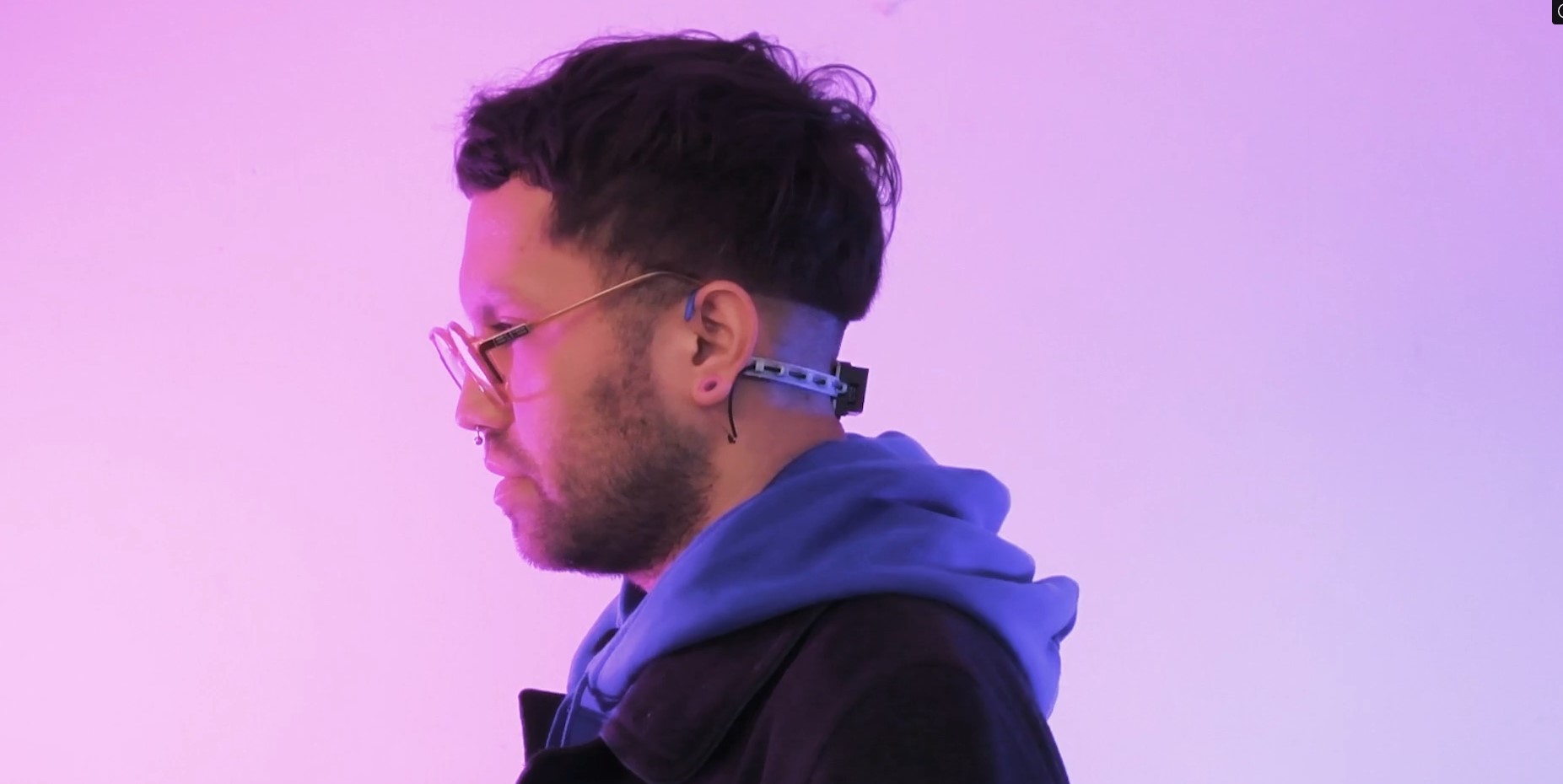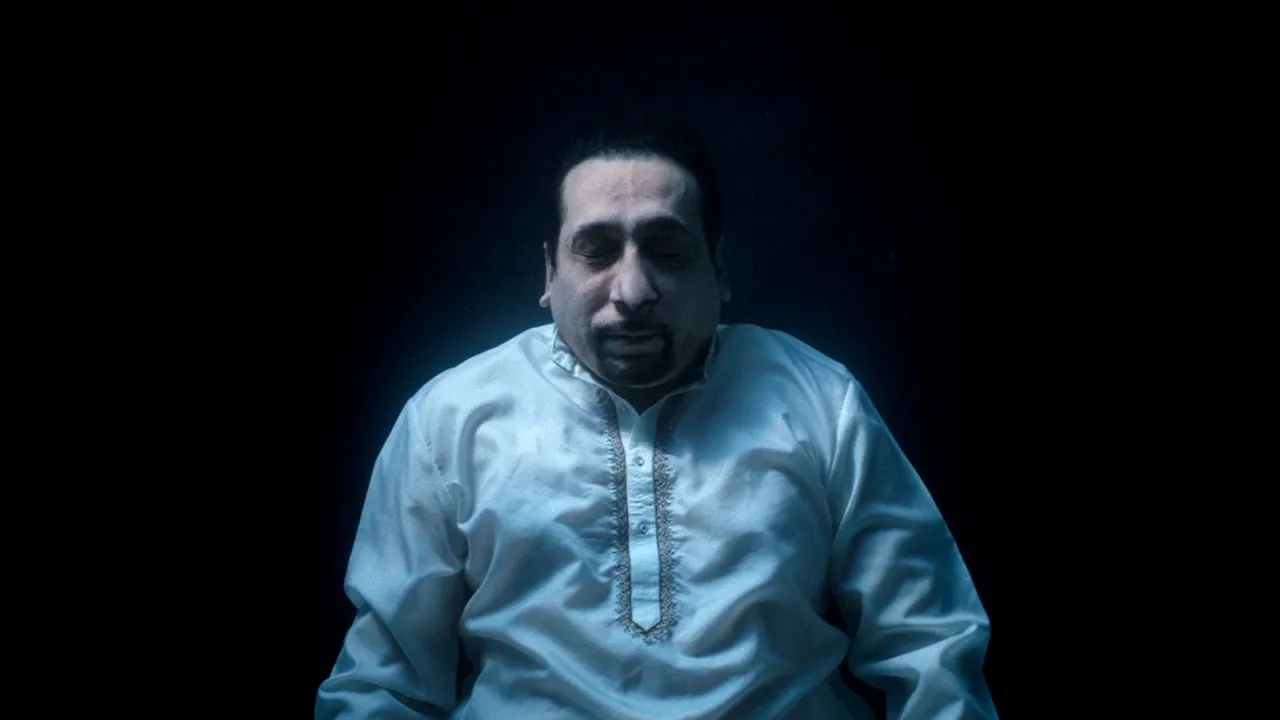Transhumanism and Cyborg Identity
In an interview, Chilean cyborg artist Esteban Celis discusses biohacking, transhumanism, and their implications for human identity and society. Celis explores the philosophical and practical implications of transhumanism, a movement focused on enhancing human capabilities through science and technology. He considers transhumanism not merely as a tool for physical augmentation but also as a way to question and expand human identity. Celis explains, “Transhumanism, for me, is about going beyond the limits imposed by our biology, not necessarily to become something non-human, but to redefine what it means to be human.”
He situates himself within this framework, describing his art and technological enhancements as an effort to push the boundaries of human experience. “My goal is not to abandon humanity but to enrich it. By integrating technology, we are creating new forms of existence, new ways to connect with our surroundings,” he says.
Cyborg Art as a Dialogue with Nature
Unlike other cyborg artists who may adopt trans-species identities, Celis maintains that his identity remains inherently human. He stresses the importance of staying connected to nature while embracing technology. Esteban Celis observes, “Cyborg art allows us to replicate senses present in animals—like heightened perception or sensitivity to environmental changes—but always through a human lens.” This approach seeks to harmonize technology with the natural world rather than replacing it.
Transhumanism: Ethics of Technological Integration
Celis expresses concern over how corporations and governments might exploit technologies under the guise of transhumanist progress. He warns against the commodification of technological upgrades, where enhancements may come with strings attached, such as data collection or restrictive user agreements. “True transhumanism must be rooted in individual freedom, not corporate control,” he argues. Celis advocates for “morphological freedom,” the right of individuals to modify their own bodies without external interference, so long as it respects others’ rights. He opposes mandatory implementations of technology that could strip away personal agency.
Educational Importance and Critical Awareness
In discussing the societal implications of biohacking and transhumanism, Celis highlights the need for education. He believes that informed individuals are better equipped to make ethical choices about adopting new technologies. “We cannot blindly accept every technological advancement as progress,” Celis warns. He emphasizes the need for a critical understanding of the risks and benefits associated with enhancements, particularly when they intersect with social and political structures.
On Stress and Technological Solutions
Celis also reflects on the paradox of using technology to solve problems that are often created by societal pressures. For example, he critiques tools designed to improve productivity or focus, arguing that they address symptoms rather than causes. “If we live in a society that constantly stresses us, we should question that system rather than rely on technology to cope,” he explains.
A New Horizon for Humanity
Celis sees transhumanism and cyborg art as a collaborative exploration of what it means to be human in the 21st century. He believes that by embracing technology thoughtfully, society can transcend biological and cultural limitations while preserving the essence of humanity. “The future isn’t about losing ourselves to machines; it’s about using them to become more deeply ourselves,” he concludes.






